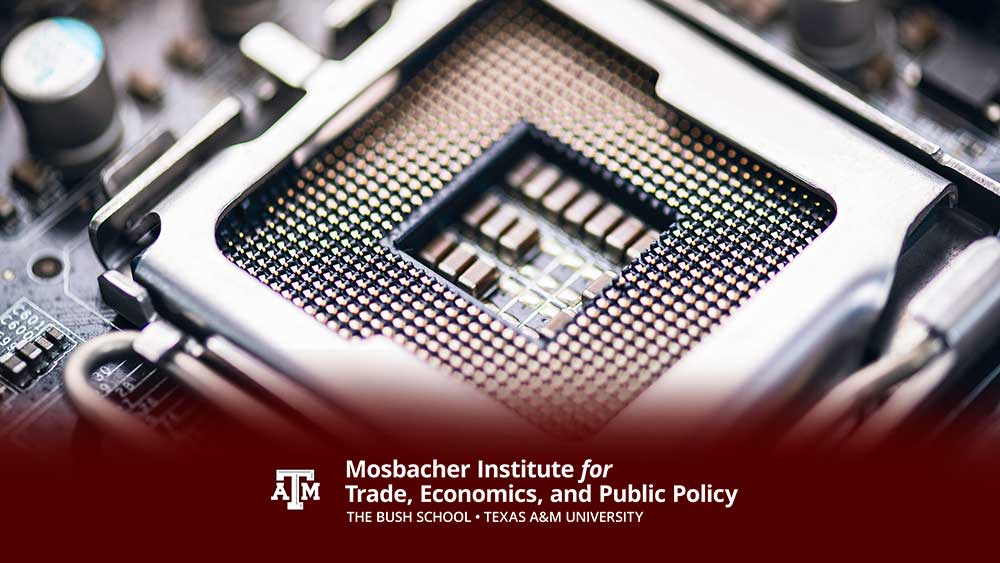
A paper on global semiconductor supply chains examines the conflict between the United States and China for semiconductor supremacy and its policy implications.
Semiconductor-based technologies have far-reaching implications for both economic competition and national security. Will U.S. sanctions targeting China’s semiconductor industry slow their rapid development and what will their effect be on global supply chains?
In the latest Mosbacher Institute White Paper, “Beyond the Battle for Supremacy: Reshaping the Global Semiconductor Supply Chain,” Hyung-gon Jeong, a visiting scholar at the Mosbacher Institute for Trade, Economics, and Public Policy and a senior research fellow at the Korea Institute for International Economic Policy, and Raymond Robertson, director of the Mosbacher Institute and a professor at the Bush School of Government at Texas A&M University, use competitive and network analyses of the global semiconductor supply chain to assess the role and status of each of the major countries in the supply chain. The results are used to evaluate how U.S. sanctions will affect Chinese, U.S., and global semiconductor industries and to recommend U.S. policy measures.
Mosbacher Institute White Papers are publications of the Mosbacher Institute for Trade, Economics, and Public Policy at the Bush School at Texas A&M University.

